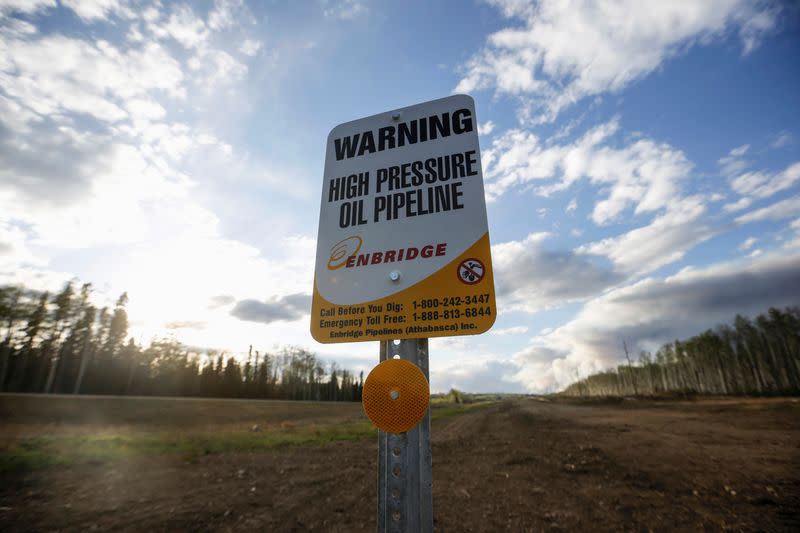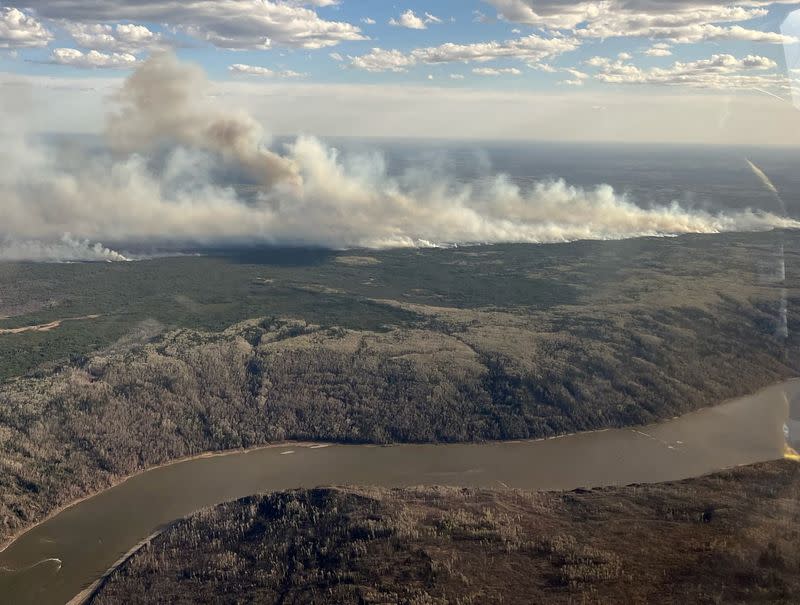Factbox-Why is fire-threatened Fort McMurray so important to Canada's oil industry?
By Nia Williams
(Reuters) - A wildfire threatening the Canadian oil sands hub of Fort McMurray has prompted thousands of people to evacuate the remote northern Alberta city, reviving memories of a destructive blaze eight years ago.
On Wednesday, officials said favorable winds were likely to push the blaze away from the city, but oil market players are watching developments closely. So far, no companies have reported any impact on operations as a result of the wildfire or evacuation orders.
The 2016 fires destroyed large parts of Fort McMurray and shut in more than a million barrels per day (bpd) of crude production.
Canada is the world's fourth-biggest oil producer. Here's why Fort McMurray is so key:
LOCATION
The city of around 70,000 people is surrounded by boreal forest and lies roughly 400 km (250 miles) north of Edmonton. It is the only major urban centre in the oil sands region.
The largest projects are mostly just north of Fort McMurray, with Suncor Energy's Base Plant and its majority-owned Syncrude project both within 50 km (30 miles) of the city. Suncor said in a statement on Tuesday that many of its employees were affected by the wildfire situation.
Further north, other major sites include Canadian Natural Resources Ltd's Horizon upgrader and Imperial Oil's Kearl mine.
Canadian Natural Resources said on Wednesday it was closely monitoring the situation and would provide support as needed to staff and their families in evacuation areas. Imperial did not immediately respond to requests for comment.
Many oil companies fly remote workers in and out of Fort McMurray's airport.
PRODUCTION
The oil sands hold the world's third-largest crude reserves and produce 3.3 million bpd, roughly two-thirds of Canada's total output. The oil sands industry contributes about 3% of the Canadian economy.
Companies extract the thick tar-like oil by either mining or steaming bitumen deposits, which can be upgraded into light synthetic crude oil or blended into a heavy sour crude.
MARKET REACTION
Both the U.S. oil benchmark West Texas Intermediate (WTI)crude and Canada's heavy benchmark crude Western Canada Select (WCS) gained support from concerns that the fires could dent oil production. [O/R][CRU/CA]
The discount on WCS strengthened around $1 in morning trade on Wednesday to $11.60 a barrel below WTI, according to a broker.
WORKFORCE
Oil sands companies draw a significant percentage of their workforce from Fort McMurray.
Mining, quarrying and oil and gas extraction is the biggest industry in the Fort McMurray region employing 13,200 people, or 32% of the local working population, according to a 2021 labor study by the Regional Municipality of Wood Buffalo, which includes Fort McMurray.
An additional 22,500 people are part of the "shadow population" of workers in the industry, referring to workers who live elsewhere but fly in for shifts at oil sands projects and live in camps.
(Reporting by Nia Williams in British Columbia; editing by Jonathan Oatis)


